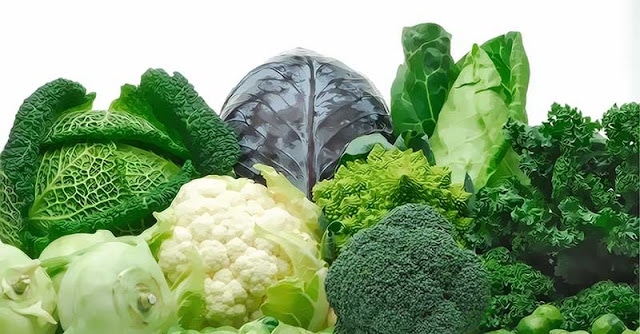Cruciferous vegetables are a family of vegetables that grow in all different colors, shapes, and sizes. They are simply superstars and share several nutritional benefits. Dark green cruciferous veggies are packed with vitamins A and C. Meanwhile, most cruciferous veggies are rich in vitamins and minerals such as folate, vitamin K, fiber, manganese, and potassium.
Cruciferous vegetables that are good sources of plant nutrients needed by the body are as follows:
- Arugula
- Cabbage
- Cauliflower
- Bok Choy
- Broccoli
- Brussels Sprouts
- Kale
- Radish
- Turnips
At present, cruciferous vegetables are becoming popular due to its apparent cancer-fighting properties. They’re also rich in phytonutrients — plant-based compounds that may help lower inflammation and reduce the risk of developing cancer, as well as, help us feel full and satisfied without overeating.
The Study
In a study published in the journal Science, evidence showed that a compound known as indole-3-carbinol (I3C) can help stop tumor development in mouse models of prostate cancer. This compound is present in cruciferous veggies such as broccoli and kale as well turnips, and Brussel sprouts.
The study was carried out by a team of researchers led by Pier Paolo Pandolfi, a Professor of Medicine at Harvard Medical School. It consisted of members representing institutions in the US, China, Taiwan, India, Australia, and Italy.
Researchers explored the function of PTEN which is considered to be the most important tumor suppressor in the history of cancer genetics. PTEN is a phosphate and tumor-suppressing protein whose activity is the most frequently deleted, mutated, or deactivated in human cancers.
According to the team, tumor cells showed to have lower levels of PTEN. That’s why they conducted an experiment on cancer-prone mice and humans to unleash the tumor-suppressing capabilities of PTEN. The results demonstrated that the function of PTEN was inhibited by WWP1, an enzyme that promotes cancer growth. Thereby, researchers used a computer model to enable then to analyze the molecular structure and biochemical activity of WWP1, making it easy for them to determine what is the exact molecule that could bind the enzyme and block its function.
At the end of the study, results demonstrated that the compound I3C was able to neutralize the effects of WWP1 and restored the potent tumor-suppressing abilities of PTEN.
According to the researchers, the natural compound that can inhibit the enzyme that plays as pathways to the development of cancer is present in broccoli and kale as well as other cruciferous vegetables.
Pandolfi says:
“These findings pave the way toward a long-sought tumor suppressor reactivation approach to cancer treatment.”
Ways to Add Cruciferous Veggies to our Diet
- Mix arugula into salads.
- Stir fry Bok choy
- Sauté chopped broccoli drizzled with olive oil, cracked black pepper, and minced garlic.
- Brussels sprouts are delicious many ways – sautéed, steamed, baked, shaved into salads or added to a soup. They’re also great when roasted with meat and apples.
- Use cauliflower instead of white rice.
- Cabbage rolls are a delicious, nutritious and filling way to enjoy cabbage









